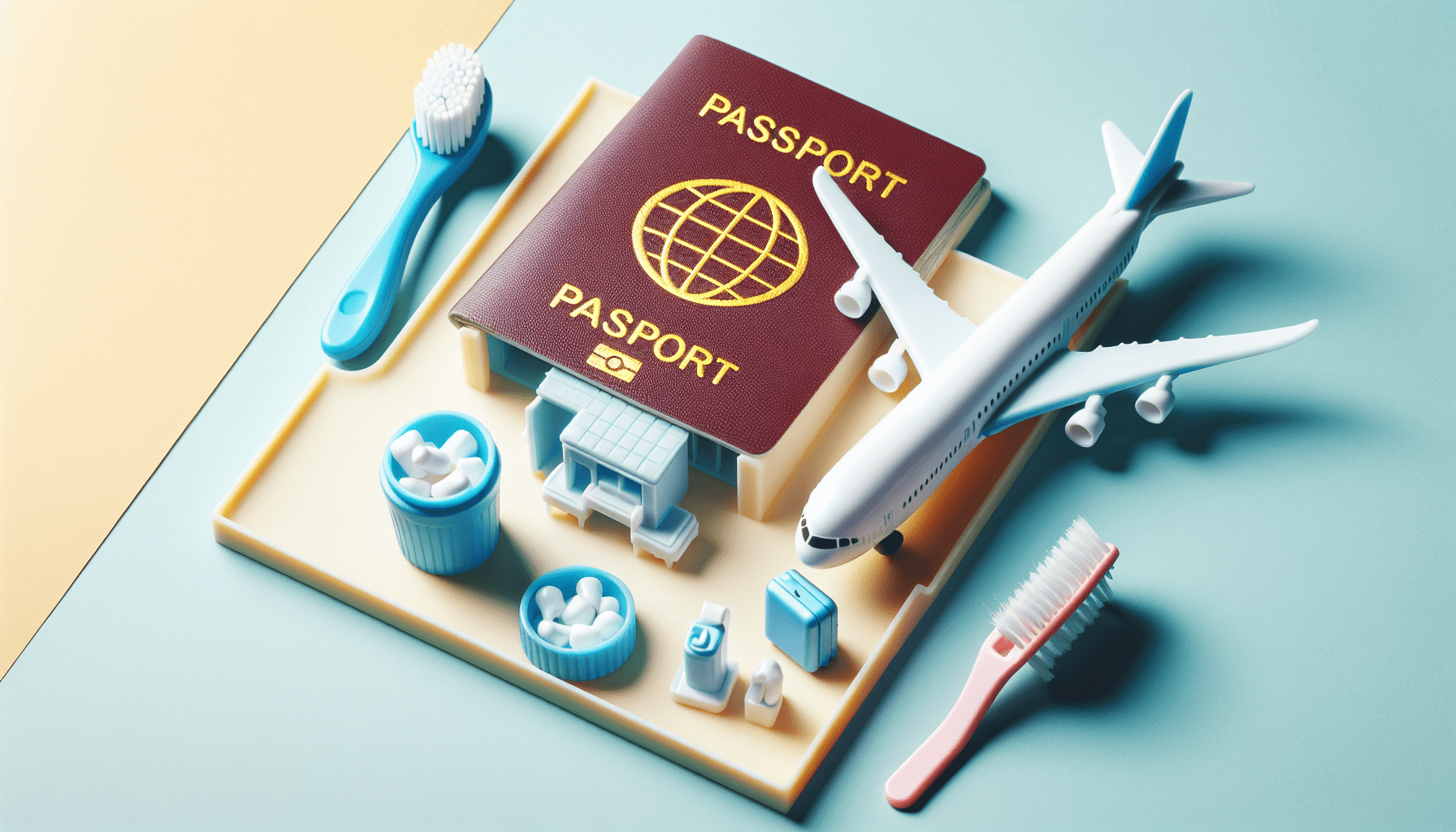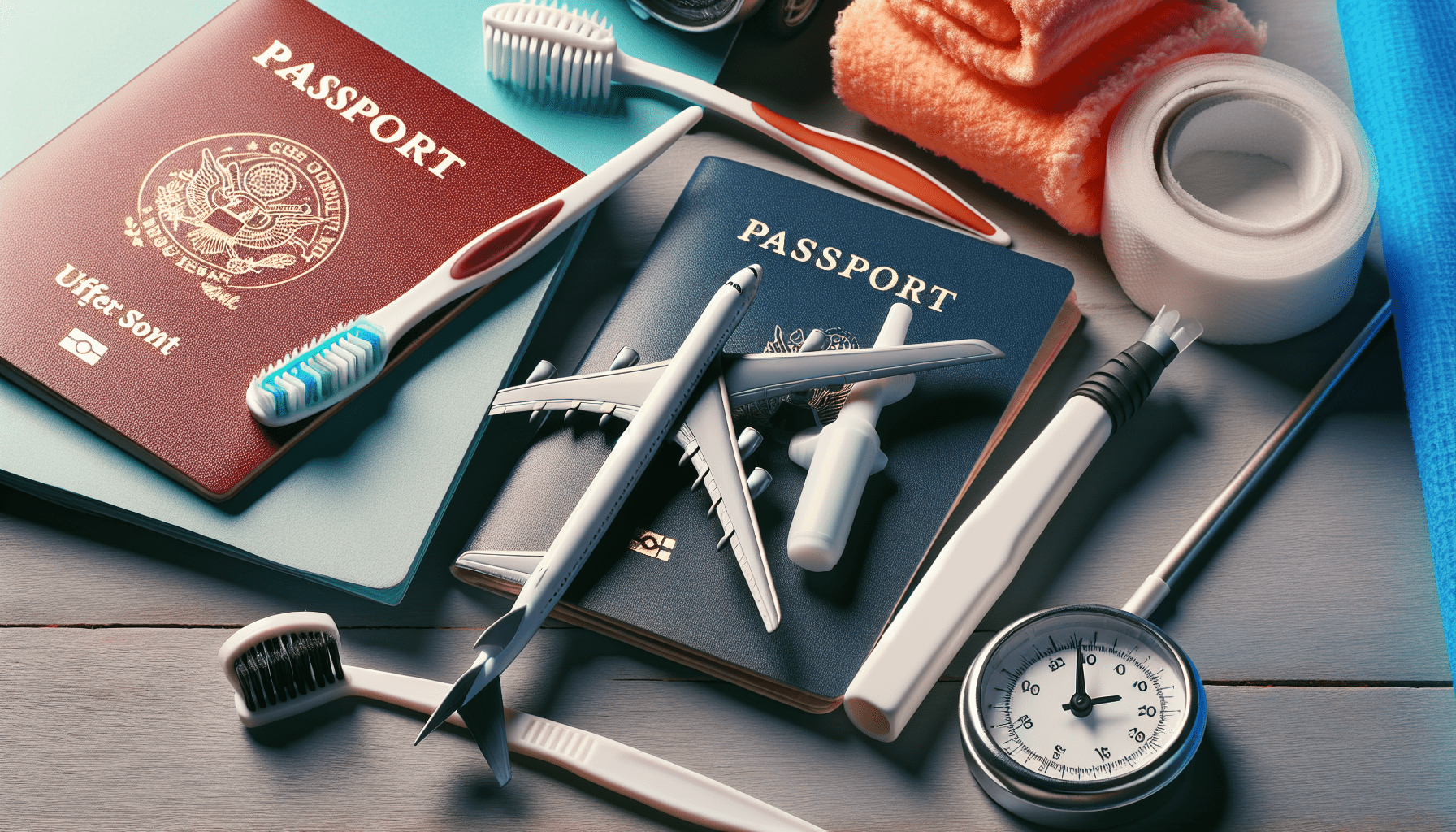Yamadura Mini Refillable Perfume Portable Atomizer Bottle Refillable Perfume Spray, Refill Pump Case for Traveling and Outgoing (5ml, 4 Pack) 4
$8.99 (as of April 6, 2025 11:38 GMT +00:00 - More info)If you’ve ever had dental work done, you know the experience can be mildly traumatic. From the startling sounds during the procedure to the sore gums after, it’s not something anyone looks forward to. But what you might not realize is that flying soon after visiting the dentist can interfere with your healing time and potentially cause painful complications. Specifically, extractions are especially prone to travel-induced complications due to the cabin pressure within the plane. The build-up of pressure could release the blood clot necessary for healing, increasing the risk of a dry socket. Not only that, but if you choose to travel shortly after oral surgery, it can be challenging to receive proper follow-up care and treatment in case of infection or unforeseen side effects. It’s best to postpone air travel until your dentist gives you the go-ahead, or carefully follow your dentist’s instructions if you must fly. Just remember to pack your own dental hygiene items to ensure comfort during your trip.
Shop These Accessories for a Comfortable Trip
Why Flying After Dental Work is Not Recommended
Risk of Complications due to Cabin Pressure
Flying soon after dental work can pose risks to your oral health due to the changes in cabin pressure. According to registered periodontal hygienist Katrina M. Sanders, the build-up of pressure within an extraction site could potentially dislodge the blood clot that forms during the healing process. This can increase your risk of developing a dry socket, a painful condition that can occur after tooth extraction. The cabin pressure in an airplane can have a significant impact on the extraction site and disrupt the healing process, making it important to avoid flying too soon after dental work.
Limited Follow-up Care
Traveling by plane shortly after dental surgery can also limit the follow-up care you receive from your dentist or dental hygienist. In the event of complications, it may be challenging for dental professionals to provide adequate guidance over the phone or through blurry photos. Physical examinations and observations, such as palpating the lymph nodes or taking X-rays, are crucial for properly assessing any post-operative issues. By traveling before giving your dentist a chance to assess your healing progress, you may be placing yourself at risk for further complications that may go unnoticed and untreated.
Potential Difficulties in Finding a Dentist in a New Location
If you happen to experience complications from dental work while traveling, finding a dentist or dental hygienist in a new location can be challenging. They may not be familiar with your medical history or have access to your dental records. It is vital to have access to proper and personalized treatment, especially for individuals who are immunocompromised or taking immunosuppressant medications. By postponing air travel until you have fully healed and received appropriate follow-up care from your regular dentist, you can avoid the potential difficulties associated with finding dental care in unfamiliar surroundings.
Increased Risk for Immunocompromised Individuals
Immunocompromised individuals, such as those with autoimmune diseases or undergoing chemotherapy, are at an increased risk of developing infections after dental procedures. The cabin environment of an airplane can expose you to various bacteria and viruses, putting you at a higher risk of infection. It is important to prioritize your health and minimize unnecessary risks by avoiding air travel soon after dental work. Consult with your dentist or healthcare provider to determine the best course of action based on your specific medical condition and needs.
Boarding a Flight Soon after Dental Work
Impact of Cabin Pressure on Extraction Site
The primary concern when flying after dental work, especially extractions, is the effect of cabin pressure on the extraction site. The changes in pressure can disrupt the formation of the blood clot that is vital for proper healing. The release of this blood clot increases the risk of developing a dry socket, a condition characterized by severe pain and discomfort. To ensure the successful healing of the extraction site, it is crucial to avoid subjecting the area to the potentially harmful effects of cabin pressure.
Increased Risk of Dry Socket
Dry socket is a common complication that can occur after tooth extraction. It is characterized by the dislodgement or dissolution of the blood clot that forms in the socket after the removal of a tooth. Flying soon after dental work can increase the risk of developing a dry socket due to the changes in cabin pressure. The suction effect created during takeoff and landing can put additional pressure on the extraction site, potentially dislodging the blood clot and delaying the healing process. To minimize the risk of dry socket, it is best to allow your extraction site to heal properly before exposing it to the pressures of air travel.
Importance of Allowing Proper Healing Time
Proper healing after dental work requires time and rest. Rushing into air travel soon after dental procedures can disrupt the healing process and increase the likelihood of complications. It is important to listen to your dentist’s advice and allow enough time for the extraction site to heal before exposing it to the pressures of flying. By giving your body the necessary time to heal, you can reduce the risk of complications, such as dry socket, and ensure a smoother recovery overall.

Shop These Accessories for a Comfortable Trip
Interference with Post-Op Treatment
Limited Guidance from Phone Consultations
Traveling by plane after dental work can hinder the post-operative treatment and guidance you receive from your dentist. While phone consultations may be convenient, they often lack the clarity and detailed assessment that an in-person examination provides. Dental professionals need to physically examine the area, observe changes in tissue, and potentially take X-rays to properly diagnose and treat any complications that may arise. By flying too soon after dental work, you may limit your dentist’s ability to provide you with the comprehensive care and support you need during the crucial post-operative period.
Inability to Observe Changes in Tissue or Take X-rays
Certain dental complications may not be apparent without proper physical examination and imaging techniques, such as X-rays. By traveling before your dentist has had the opportunity to assess your healing progress, you may be putting yourself at risk of delaying the diagnosis and treatment of any post-operative issues. It is essential to prioritize your oral health and provide your dentist with the necessary time and opportunity to monitor your healing process through observations and diagnostics.
Challenges for Immunocompromised Individuals
Immunocompromised individuals face additional challenges when it comes to post-operative care and monitoring. Flying after dental work can expose them to a higher risk of infection due to the presence of various bacteria and viruses in the cabin environment. It is crucial for immunocompromised individuals to prioritize their health and minimize unnecessary risks. By avoiding air travel soon after dental work, they can reduce the chances of infection and ensure proper healing. It is always recommended to consult with a healthcare provider to assess the individual risks and make informed decisions based on the specific medical condition and needs.
Precautions to Take if Flying After Dental Work
Follow Dentist’s Orders
If you must fly shortly after dental work, it is crucial to follow your dentist’s instructions and recommendations. Your dentist may provide specific guidelines to minimize the risk of complications during air travel. This may include instructions to limit smoking or avoid it altogether, adhere to prescribed medications, and follow dietary restrictions. By carefully adhering to your dentist’s orders, you can help promote the healing process and minimize any potential setbacks.
Smoking Limitations
Smoking after dental work can significantly hinder the healing process. The chemicals in tobacco smoke can delay the formation of blood clots and impair the body’s ability to heal properly. If you must fly soon after dental work, it is essential to strictly adhere to any smoking limitations set by your dentist. Avoid smoking leading up to your flight and throughout the duration of your air travel to promote optimal healing and reduce the risk of complications.
Medication Adherence
If your dentist prescribes any medications following dental work, it is crucial to adhere to the prescribed dosage and schedule. Medications, such as antibiotics or pain relievers, play a vital role in preventing infections and managing pain during the healing process. By following your dentist’s prescription, you can help ensure that your body receives the necessary support to heal properly and minimize any discomfort or complications during air travel.
Dietary Restrictions
Certain dental procedures may require temporary dietary restrictions to promote healing and prevent complications. Your dentist may advise you to avoid hard or sticky foods that can potentially irritate the surgical site or dislodge any necessary blood clots. While traveling, it is important to adhere to these dietary restrictions to protect your oral health and facilitate proper healing. Plan your meals and snacks accordingly, and choose soft and easily chewable foods to avoid any unnecessary risks.
Maintaining Oral Hygiene
Proper oral hygiene is crucial for the success of any dental procedure and the overall health of your mouth. Even while traveling, it is important to maintain a consistent oral hygiene routine as directed by your dentist. Brushing your teeth twice a day with a soft-bristled toothbrush and using dental floss or interdental brushes to clean between your teeth can help prevent complications and maintain good oral health during your journey. Remember to be gentle around any surgical sites and avoid disturbing the healing process.
Packing Essential Dental Hygiene Items
When traveling after dental work, it is important to pack essential dental hygiene items to ensure optimal oral care. Be sure to bring a high-quality soft toothbrush, toothpaste recommended by your dentist, and any additional dental tools or products they may have advised, such as water flossers or mouth rinses. By having these items readily available, you can maintain your oral hygiene routine and minimize the risk of complications or discomfort while away from home.
In conclusion, flying after dental work is not recommended due to the potential risk of complications, limited follow-up care, difficulties in finding dental care in a new location, and increased risk for immunocompromised individuals. It is important to prioritize your oral health and allow proper healing time before subjecting your dental work to the pressures of air travel. By following your dentist’s guidance, adhering to any restrictions or medications, maintaining good oral hygiene, and packing essential dental hygiene items, you can help ensure a successful recovery and minimize any negative outcomes during your journey.
Shop These Accessories for a Comfortable Trip







